Wire wrapping tool for electronics prototyping with reliable connections
Breadboards allow for quick prototyping of electronic circuits, yet they don't offer reliable connections, especially those that will last in less friendly that desk conditions. We can solder the circuit on an universal PCB but that requires time and makes any fixes quite hard to implement. Fortunately there is a in-between solution called wire wrapping.
In this article I'll showcase a simple tool for wire wrapping - an very old technique of wrapping wires on electronic components. More reliable than DuPont connectors and a breadboard yet quick and easy to wrap or unwrap.
Wire wrapping tool

Wire wrapping tool
Aliexpress or other stores like farnell offer simple wrapping tools. You need one and a wrapping cable. The Chinese stores offers kits of spool of wrapping wire and the tool (pencil).
The tool has three functionalities: stripping insulation from the wire, wrap and unwrap the wire and is quite simple to use. The wrapping pencils
can differ with what largest wrapping wire diameter they can handle. The wrapping wires like 26 AWG
are described with American Wire Gauge which translates to wire diameter, max ampacity and so forth. The bigger the number the smaller the diameter of the wire.
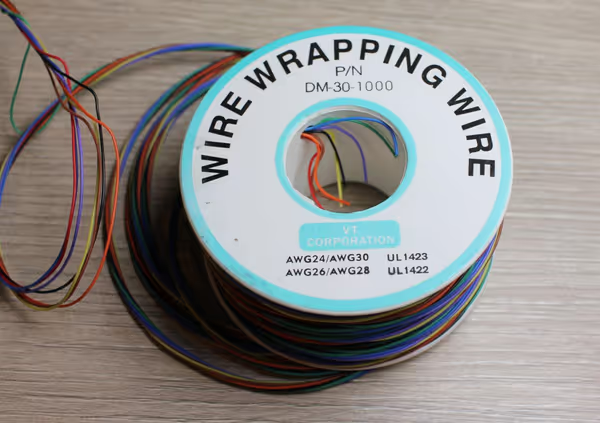
Spool of wrapping wires
How to wrap a wire?
The pencil has two ends - one longer and one shorter. The longer one is used to wrap the wires and the shorter one to unwrap them. The wrapping side has a tunnel (hole
) in the middle as well as a small opening on the side. You put the wire (with insulation stripped) in the side opening and you put the part you want to wrap (like a LED anode or cathode pin) in the middle one. Then you turn the pencil few times, until the whole length of stripped wrapping wire is wrapped around the part.
To unwrap the wire just put the wrapped part in the shorter tunnel and turn it in the opposite direction. To strip the insulation put the wire in the opening in the middle of the pencil, hold it slightly against the cutting side and pull the cable back - the insulation should stay while the wire should be pulled back.
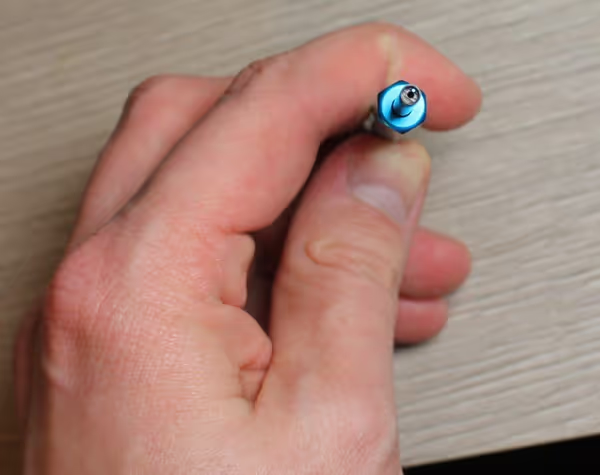
Two tunnels inside the longer end of the pencil

Wire ready for insulation stripping
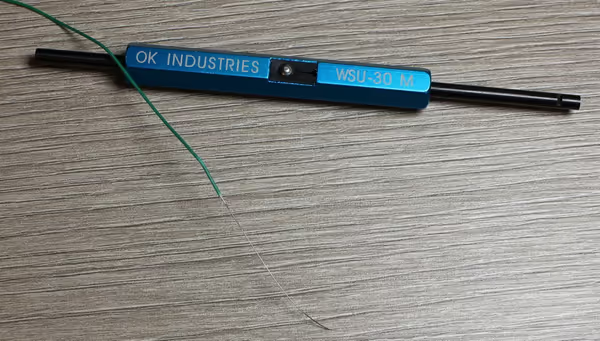
insulation stripped
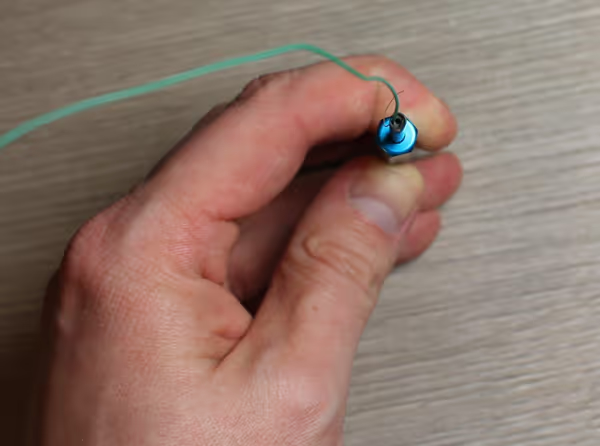
Stripped wrapping wire inserted into the side tunnel
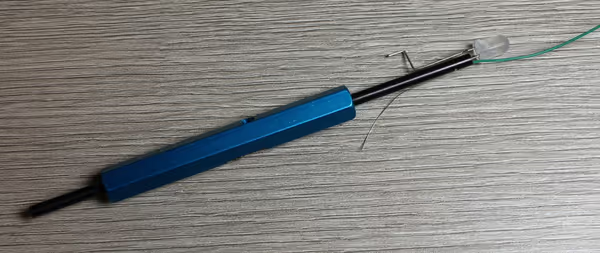
LED pin ready to wrap around
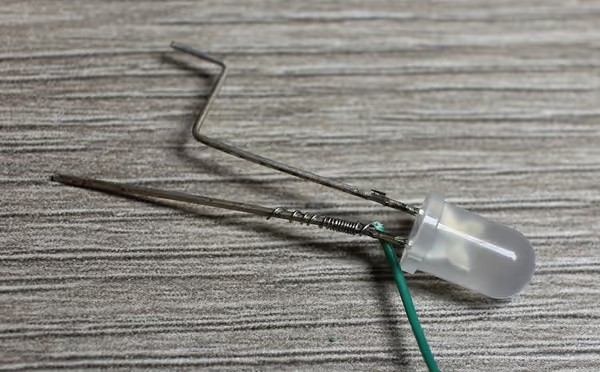
Wrapping result
You can wrap components and microcontroller pins together, you can wrap multiple wires on one pin one after another. You can also connect elements soldered to a universal PCB together with such wire and if everything is working properly you can even easily solder it for permanent connection.
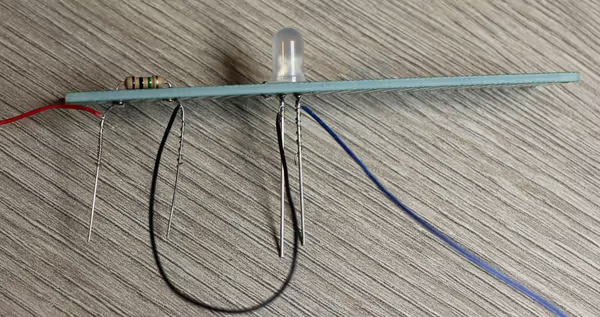
Components soldered to universal PCB can be connected with wrapping wire
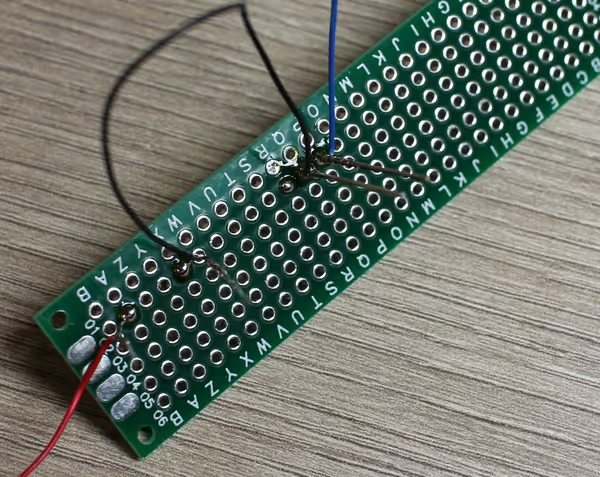
Components pins can be used to wrap around eve multiple wires
If you would want to use wire wrapping in circuits using higher voltage and amperage like a 12V 0.1A fan you have to use thick enough wire. Check the AWG table to see which minimal wire diameter you need to handle the load.
Comment article